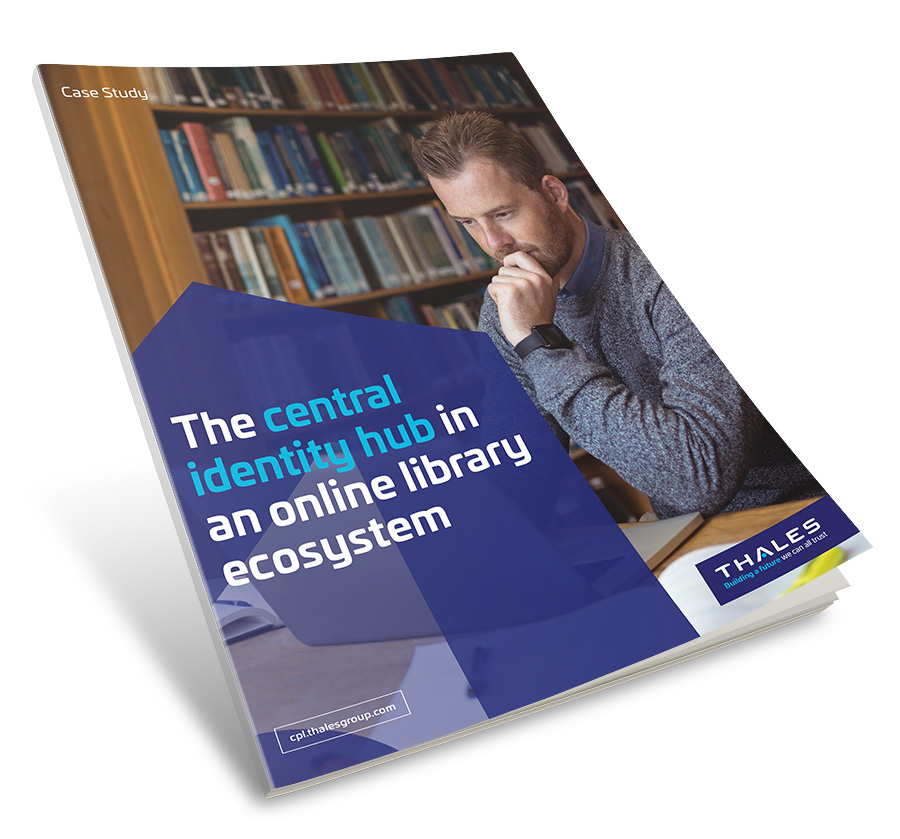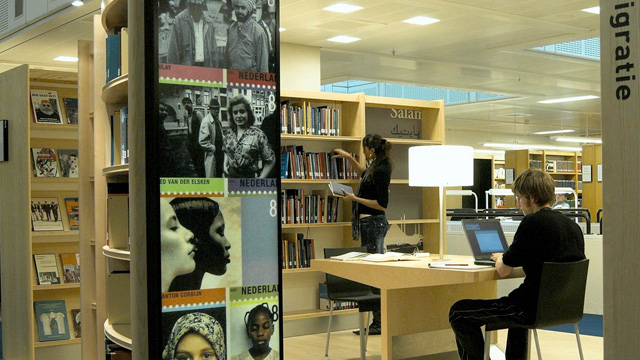
The central identity hub in an online library ecosystem - Case Study
Managing identities at scale
The library’s digital vision included the wish to provide the Dutch public with a single access ‘key’ to all the library’s services. One of the main challenges would be the solution’s scalability. The library has a large audience, theoretically consisting of every resident of the country. In practice, there are over 7 million active user accounts. This number is predicted to increase to approximately 10 million. With such a vast user base, the project would require a strong Identity and Access Management (IAM) service provider capable of working on that scale. The Royal Library’s search for an IAM partner led them to implement the Thales OneWelcome Identity Platform solution, based on a private cloud infrastructure. This was important to guarantee server availability and manage traffic peaks. The Royal Library’s servers are reserved uniquely for their own login transactions. Traffic is continually monitored and, in case of peaks, it’s possible to add processors within the data centre.
7,000,000
Users
200 +
Applications
1
Authentication service
1
Dashboard
One monitoring tool across applications
The Royal Library needed a flexible solution, capable of integrating with a multitude of applications, but with the possibility of having one dashboard for monitoring purposes across applications.
Since the Thales OneWelcome Identity Platform was built based on a microservices architecture, it offers many flexible elements that can be added on request or according to the situation. That’s why the Royal Library uses Kibana, part of the Elastic Stack and natively integrated in the Thales OneWelcome Identity Platform.

Voice technology for diverse users
Since the Royal Library’s user group is very diverse, extending to the entire Dutch population, the library offers services to people with visual or reading disabilities. To ensure access to those services, the applications and login platform include voice technology. Using the right templates, the Thales solution was successfully integrated with the library’s voice technology.

The central hub in the library ecosystem
With Thales the Royal Library successfully combined its three core principles of being digital-first, being available to the Dutch public in an inclusive way and opening up partner services to a large user group. This third ambition meant that the solution needed to work for multiple applications—not just for the library’s own services, but also for various partner applications using different technologies and granting personalised access. With a combination of both Open Authorisation (OAuth) and Security Assertion Markup Language (SAML) flows, these applications are part of a connected Single Sign-On architecture. Now, the Royal Library is the hub of a large information ecosystem, offering library materials and services, along with partner content and services, ranging from audiobooks to special support for people with reading difficulties.
Protecting a national heritage and its users
The Dutch Royal Library (Koninklijke Bibliotheek) has been a source of knowledge and inspiration for centuries. Within the library’s vast collection, every written publication in the Netherlands is documented and kept safe for future generations. With growing access to digital sources and the explosion of eBooks and audiobooks, the Royal Library has rapidly shifted to become a digital-first organisation. Creating a digital library available to all citizens of the Netherlands has become the library’s top strategic priority. That’s why they needed to facilitate digital access for their users at scale.
The Royal Library operates according to three core principles: First, their activities aim to foster education and creativity for society. As such, they are publicly funded and serve an essential purpose within Dutch society. This means that inclusion is a crucial part of their operating strategy. The library’s resources must be available to a diverse group of users (the entire Dutch population), including safe, convenient online access.
The Royal Library’s second core principle is its focus on digital-first. To take a leading role in today’s information society, the library doesn’t just keep up with digital developments, it also initiates new forms of collaboration to connect people with its collection, enhance knowledge and drive innovation.
The third core principle in the Royal Library’s mission is to develop partnerships. The organisation works with a diverse range of partners that support them in their mission and vision (for example, organisations that develop educational materials for dyslectic children). This means that the Royal Library not only offers access to its own online resources, but also shares partner content with a broad audience.
© Thales - November 2023